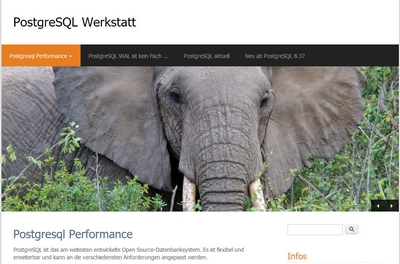
Fragen zur Performance und Optimierung von PostgreSQL haben wir in unserer PostgreSQL Werkstatt eine ganze Artikelserie gewidmet. Wir nehmen die internen Abläufe bei der Bearbeitung von Anfragen unter die Lupe und zeigen, wie man Performance-Problemen auf die Spur kommt.
Weiter zur PostgreSQL Werkstatt >>
Auf der Seite http://www.postgresql.org/about/featurematrix finden Sie eine Matrix, in der die Features der PostgreSQL-Versionen übersichtlich dargestellt sind.
Downloads
https://www.postgresql.org/download/
Dokumentation
https://www.postgresql.org/docs/
PostgreSQL Software Katalog
https://www.postgresql.org/download/product-categories/
PostgreSQL Wiki
https://wiki.postgresql.org/wiki/Main_Page
